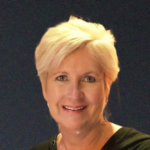A future where autism care is personalized to fit an individual's unique genetic makeup is now one step closer to reality, thanks to a new big data initiative.
Known as the Autism Sharing Initiative, the project is bringing together autism researchers from around the world to create the first global network for sharing clinical and genetic data-a move that will accelerate autism research and support the development of personalized care and treatment options.
Geneticist Dr. Suzanne Lewis, a clinical professor in UBC's department of medicine, is among the international team of autism researchers and is leading efforts underway at UBC and BC Children's Hospital Research Institute (BCCHR).
Here, she discusses the genetics of autism and shares how this new initiative will advance research and potentially alter the future of diagnosis and treatment for the nearly one in 66 Canadians living with autism.
What is known about the genetics of autism?
The first clue that genetics played a role in autism emerged nearly 50 years ago when researchers found that identical twins shared an autism diagnosis much more frequently than non-identical twins.
Today, we know there are a long list of genes implicated in autism-and that list is growing.
Many of these genes are involved in controlling communication between neurons, the information messengers of our body.
Because there's not a single type of autism, but rather a full spectrum of autism subtypes-all of which are influenced by a combination of genetic as well as environmental factors-understanding the mechanisms involved in autism is a complex undertaking.
We're gaining new insights every day but are really just at the tip of the iceberg.
How will this new initiative help to advance our understanding moving forward?
Up until now, our ability to understand the genetic factors involved in autism has been limited by the specific data available at our individual institutions.
Using new technology, the Autism Sharing Initiative will enable international collaboration between institutions, allowing researchers like me to use powerful artificial intelligence methods to search and analyze multiple, de-identified genomic and patient datasets from around the world.







